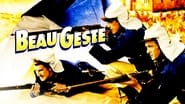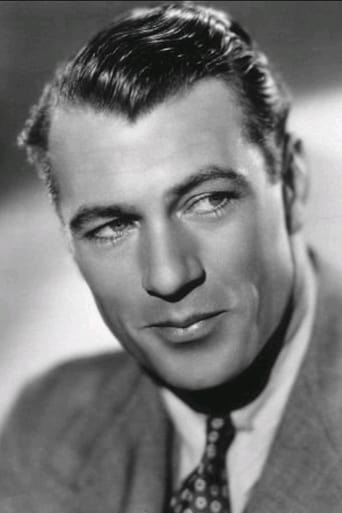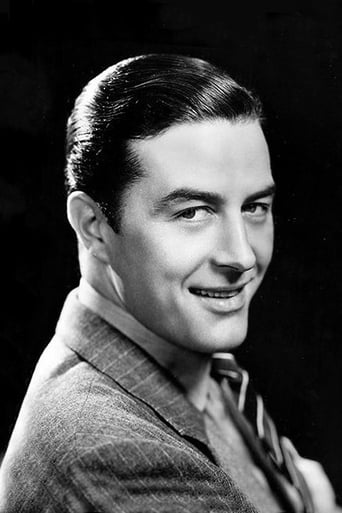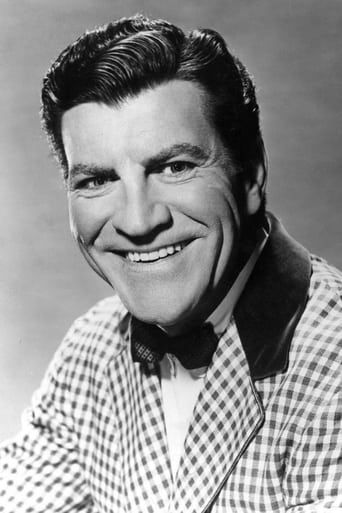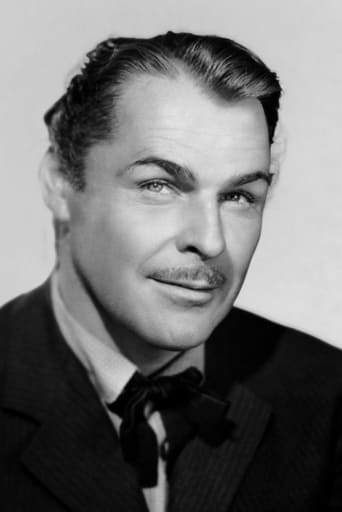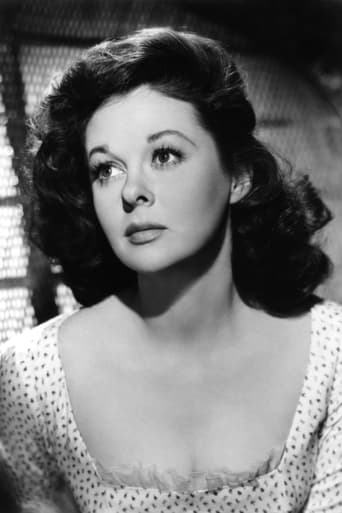SunnyHello
Nice effects though.
Matrixiole
Simple and well acted, it has tension enough to knot the stomach.
Ketrivie
It isn't all that great, actually. Really cheesy and very predicable of how certain scenes are gonna turn play out. However, I guess that's the charm of it all, because I would consider this one of my guilty pleasures.
Tyreece Hulme
One of the best movies of the year! Incredible from the beginning to the end.
popcorninhell
The year was 1939, and the world seemed to be cloaked in an overwhelming sense of dread. After the failure to stop Germany's annexation of the Sudetenland and the consequent military buildup, everyone from France to the United Kingdom to the United States was nervous about Adolf Hitler's machinations in central Europe. Allied reaction to the looming Wehrmacht is expressed in the films each country produced at the time. The French produced what is arguably their greatest cinematic achievement, Jean Renoir's The Rules of the Game (1939) a complex and bitter tragic-comedy about an aristocracy blissfully unaware of their own impracticality. The United Kingdom released the ostentatious British-Empire film Four Feathers (1939) and the thriller The Spy is Black (1939) both typifying the trappings of their genre but still fatalistic in theme. Finally there was the United States famous around the world for two things, Hollywood glitz and rebellious bluster; to that end Gone with the Wind (1939) satisfied both criteria to become the most popular film ever.Beau Geste pre-dates Casablanca's (1942) coalition building tale of an American helping European refugees in Vichy France. Beau Geste is the story of three English brothers who join the French Foreign Legion played predominately by Americans and produced by an American studio. The three brothers Beau (Cooper), Digby (Preston) and John (Milland) are adopted by the Brandon Abbas estate headed by lady of the house aunt Brandon (Thatcher). The estate is secured by the possession of "The Blue Water" a supposedly cursed diamond that the never seen patriarch is anxious to sell. The diamond disappears promptly followed by Beau then Digby then John. Both Beau and Digby have left confessions of the theft. While in the Foreign Legion, the brothers are separated in North Africa, John becoming a cavalryman while Beau and Digby remain under the abusive thumb of Sergeant Markoff (Donlevy) at Fort Zinderneuf.In some ways Beau Geste acts like a white man's burden, Christianize Africa, make way for progress, British-Empire film with the appealing call for adventure and the hordes of nameless "savages". Yet there is no talk of colonialism and its supposed good. The novel originally written by P.C. Wren borrowed the title from "Chanson de geste" a genre of medieval French poetry literally translated to "song of good gesture". This manner of poetry celebrated grand adventures and the value of the group or the stock over the individual of romantic poems. They also tended to be epic, bittersweet and cyclical. Beau Geste definitely accentuates the theme of brotherhood, chivalry and good gesture but also hints that that may not be enough.The foil to the brothers is Sergeant Markoff, a Russian born former criminal made cruel by Siberian prisons. This worthy adversary along with fellow Russian Rasinoff (Naish) find out about the diamond and try to betray the brothers much like Russia would betray the Allies with the Molotov-Ribbentrop Pact. Yet while he's duplicitous and a tyrant Markoff proves resourceful in battle and practical immediately following a mutiny. After every attack wave of nameless, faceless Arabs, Markoff takes the dead soldiers and props them up on the Fort's embrasures and insists the bugle be played to intimidate the enemy. His resourcefulness is hard won unlike the brothers; at an early point Markoff examines John's hands and states "never done a days work in your life have you?"Yet every important figure in the film comes to realize everyone has their reasons for fighting, none of which will suffice alone. Beau fights for glory, Digby fights for his brothers, John fights to see the lovely Isobel (Hayward) again and Markoff fights because he craves power and control. There are also two Americans in the mix Hank (Crawford) and Buddy (Barton) both of which are hobos who join the French Foreign Legion simply because it provides three square meals a day. There's a moment before the infamous Fort Zinderneuf mutiny where Beau remains loyal to Markoff out of a sense of allegiance to the French Flag. It's a poignant and old-fashioned scene which unlike the rest of the film rings hollow. Is it hollow because on the eve of World War people felt jaded about Nationalism and director William A. Wellman knew it? Did he want to subtly critique the duty-bound works of Rudyard Kipling and H. Rider Haggard? Or does it seem hollow because I, as a contemporary audience member am unable to fully grasp the context?Beau Geste was released in August of 1939. By September, Germany invaded Poland thus stoking the fire of what would eventually become WWII. In the years before the United States entered the war, there were plenty of films that tried the coax the populous into supporting intervention, most made by European refugees. You had Hitchcock's Foreign Correspondent (1940), Wyler's Mrs. Miniver (1942) and Lang's Man Hunt (1941) as well as the aforementioned Casablanca which began production days before the Japanese bombardment of Pearl Harbor. While many of these films remain well known to this day Beau Geste has fallen by the wayside despite the presence of Hollywood superstar Gary Cooper. It's a shame too because this film is not only an adventurous row but a bittersweet goodbye to a standard of fortitude gone by. An excellent companion piece to The Life and Death of Colonel Blimp (1943), Beau Geste should be rediscovered by all.
blanche-2
Told many times, this version of "Beau Geste" stars Gary Cooper in the title role, and Ray Milland and Robert Preston as his brothers. The three boys live in the home of Lady Brandon, who has adopted them. Lady Brandon is the owner of the famous "Blue Water" sapphire. Because of tight money, however, it has to be sold. Lady Brandon brings out the sapphire for a final look by the family, the lights go off, and when they go back on, the sapphire is gone. Beau admits to stealing it to his brothers, and in turn, Digby and John confess, leaving us not knowing what the story is. The three brothers join the Foreign Legion and are under the command of the cruel, sadistic Sgr. Markoff (Brian Donlevy). Eventually John (Robert Preston) is separated from the other two. The film starts with John and the troop he is in coming upon Fort Zinderneuf, where everyone is dead. It then flashes back to 15 years earlier, and we learn about the boys' camaraderie, Digby's (Ray Milland) love for Lady Brandon's ward Isobel (Susan Hayward), and the battle games they played as children.Briskly directed by William Wellman, "Beau Geste" is a great adventure, a neat mystery, and a heartwarming story filled with wonderful performances. Gary Cooper is at the peak of his handsomeness and brings humor to the brave Beau, and Ray Milland does well as the one with the romance. Robert Preston in those days was not a great movie star, though he is excellent as John. His major coups would be on the stage, and it was in his role as Henry Hill in the Music Man, which he brought to film, that would much later make him a true star. Here he doesn't have a chance to shine until the end of the film. Susan Hayward is very sweet in what would prove to be an unusual type of role for her - just a few years later, she would be playing the other woman, and later than that, the tough, emotional one.Beautifully done, with some amazing desert shots, "Beau Geste" is a film that again demonstrates the "magic" of 1939.
charlytully
First for the view: This 1939 black and white adventure yarn, not nominated for best picture (GONE WITH THE WIND and some flying monkeys beat it out) covers a type of warfare somewhat less epic than that hovering over the horizon of GWTW. Muslim tacticians throw somewhat predictable hordes of horse-mounted riflemen against a fort the French have built in a misguided attempt to babysit a northern African population estimated at 20 million more than a century ago. With a stolen valuable and a sadistic sergeant playing a big part in the plot, this film combines elements which would later carry movies such as FORT APACHE, THE MALTESE FALCON, and Marlon Brando's MUTINY ON THE BOUNTY by themselves. With an extended prologue featuring some of the lead characters as children providing background for later events, and a couple postscripts (the first of which is totally unnecessary and counter-productive), it is hard to rate this remake any higher than 8 of 10.Now, for the gist of the jest, with just a kernel of truth: It is too bad BEAU GESTE costumer Edith Head was not allowed to provide technicolor hoop skirts such as those seen in GWTW or Anna's THE KING AND I outfits to Isobel and perhaps a few other gratuitous females in an added ball scene. The producers still could have filmed on the cheap by pulling a reverse WIZARD OF OZ (which, oddly enough, also was nominated for Best Picture in '39); that is, instead of having just a few minutes in black & white at the beginning and end per OZ, GESTE could have bracketed its desert gray-scale middle with color.
MartinHafer
It is an amazing testament to the power of the 1939 offerings from Hollywood that a film as superb as "Beau Geste" could not be considered one of the very top offerings of the year! But, with films like "Gone With the Wind", "Goodbye, Mr. Chips" and "Mr. Smith Goes to Washington" you can perhaps understand why. It was a very, very tough year to get noticed and if I named all the great films of this year, I'd have quite a few more to add! This tale begins in a wealthy home where three brothers are inseparable and lovers of adventure. However, when they are older, a crisis strikes when it appears that one of them has stolen an incredibly valuable jewel that belongs to the family. In reaction to this, each of the three runs off to join the Foreign Legion--hoping that they can take blame for the theft and allow the others to preserve their honor. However, it turns out all three have joined separately and just happen to be stationed in the same place (yes, I know this is practically impossible). They don't realize, however, that the Legion is not all it's cracked up to be--thanks to a sadistic Sergeant who takes pleasure in making his troops miserable and on the verge of mutiny. In the end, you learn the secret--one which one of the brothers kept from everyone until after his death.This movie has it all--a great cast (with Gary Cooper, Ray Milland and Robert Preston), a wonderful script and a great desert location shoot. I would say that it's a bit better than another great and similar adventure tale, "Gunga Din"--also from 1939!! And, just for fun, here are a few other films from this amazing year: "The Wizard of Oz", "Stagecoach", "Midnight", "Ninotchka" and "The Women"! By the way, when you watch this film, note the chubby guy with a beard and pipe when he dies. The sadistic Sergeant (Brian Donlevy--in his best role of his career) props the dead guy up to make it look like he's alive. Look closely--he's obviously breathing! Also, a moment later in a scene that is NOT a mistake, watch as one of the dying guy goes into spasms. This is pretty cool--something you don't see in films very often.

